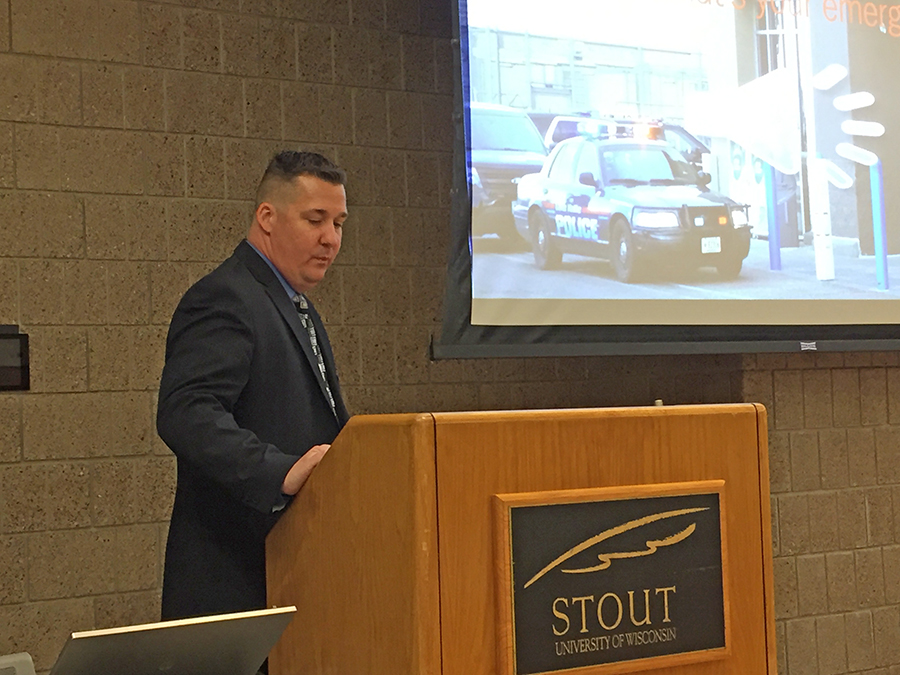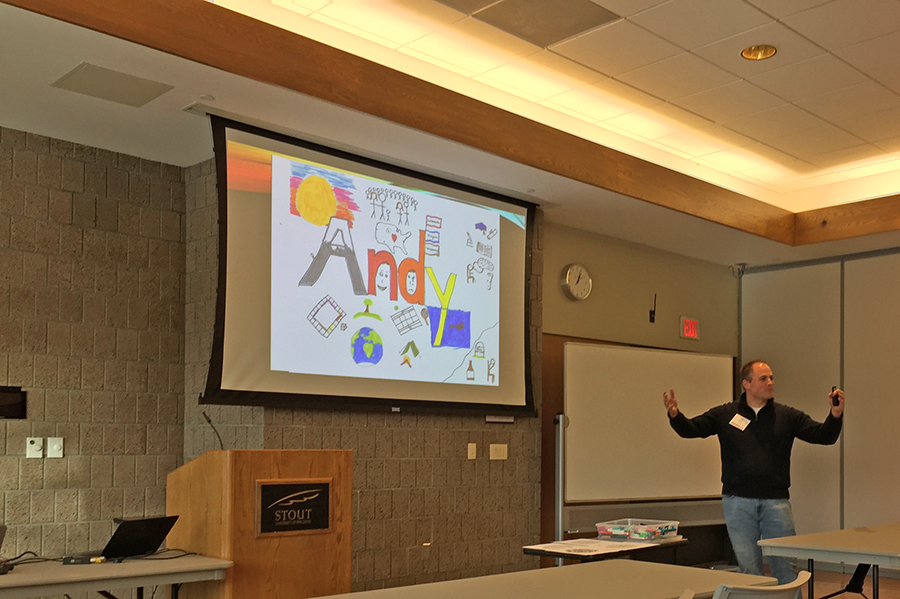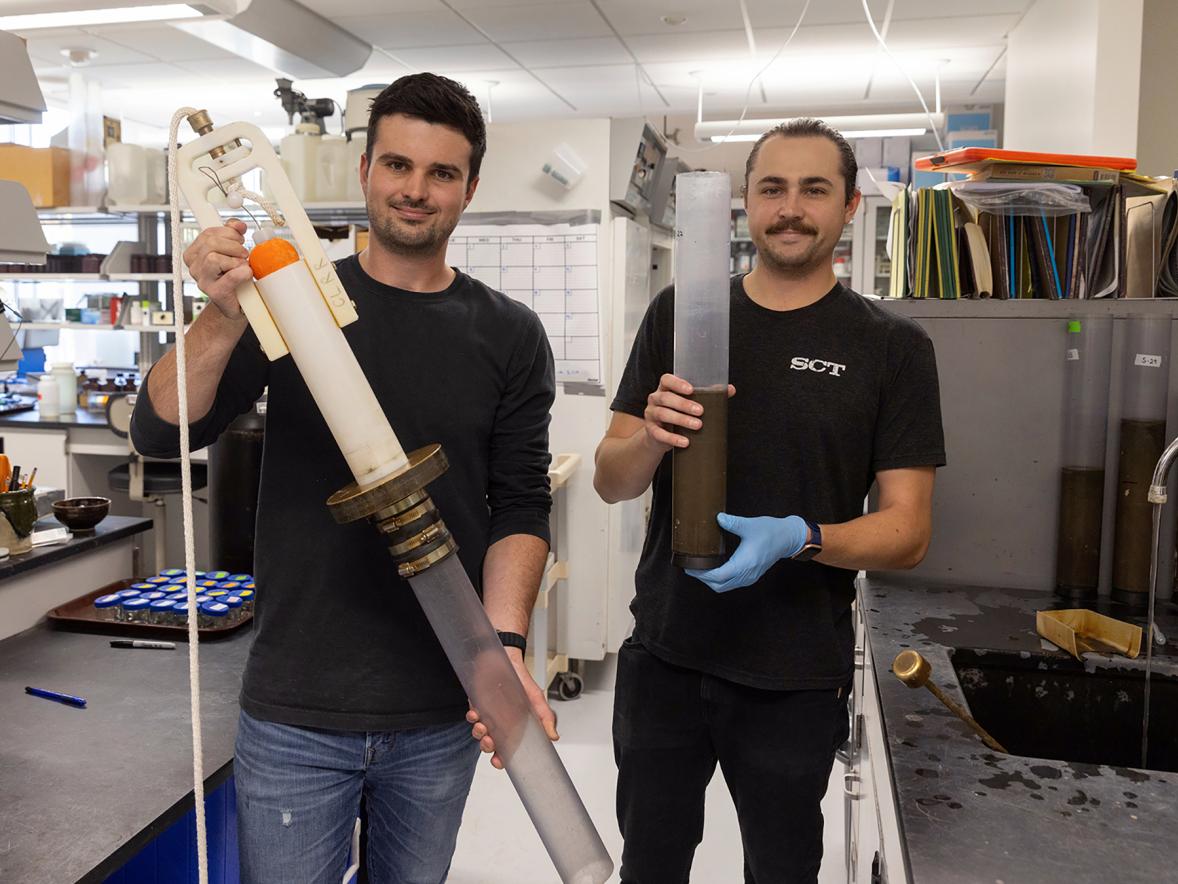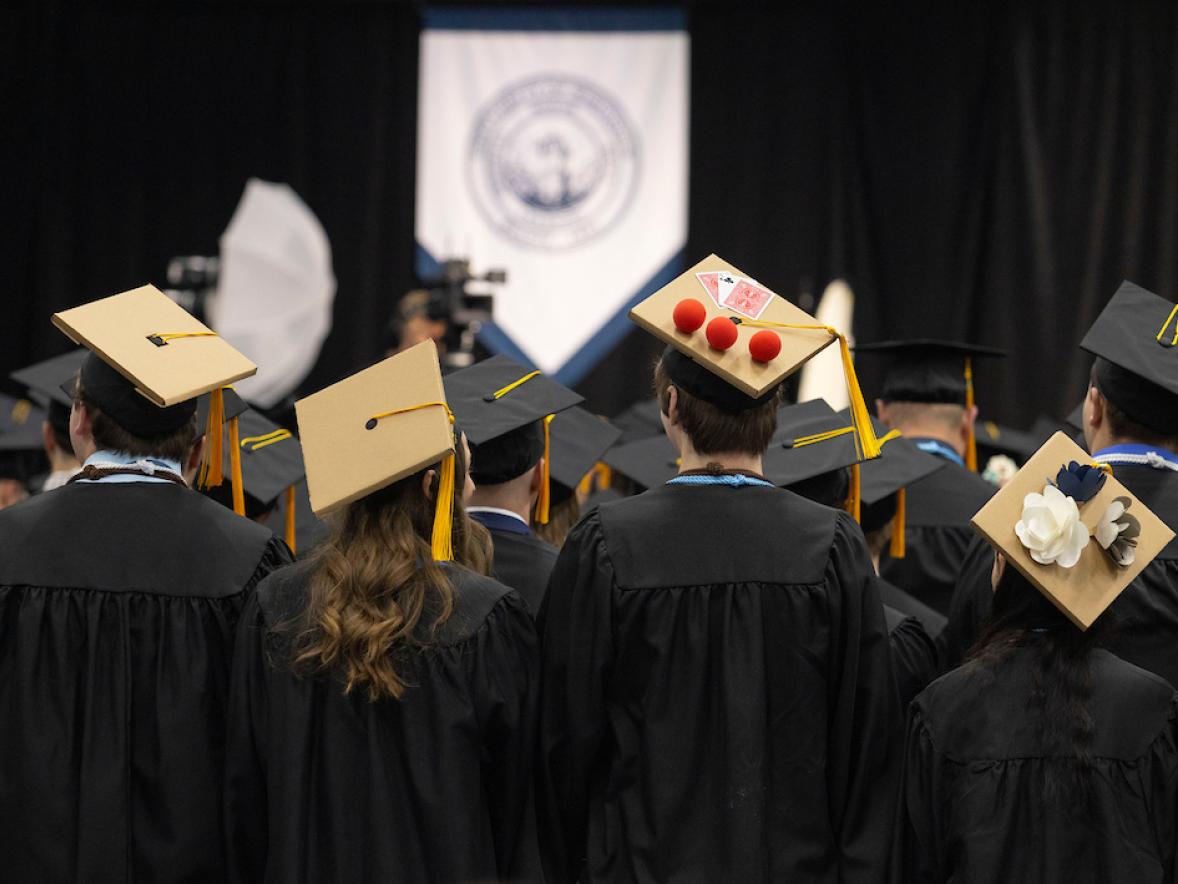Lake Hallie Police Department Detective Adam Meyers always dreamed of being a police officer but never wanted the nightmare of being an officer who shot and killed someone in the line of duty.
That changed on April 8, 2016, when Meyers responded to the Lake Hallie Walmart for a Northern Wisconsin Center client out for field trip who did not want to leave the store and return to the center, a state-operated facility in Chippewa Falls for persons with disabilities and mental diseases.
Melissa Abbott instead grabbed a hand hatchet, refused to drop it and came at Meyers. Meyers shot her in the leg and stomach, and she later died.
“It was the first shooting in the history of the police department,” Meyers said, speaking Oct. 29 at the UW-Stout Criminal Justice and Rehabilitation Conference. “I never thought I would have to do this in my career.
“Sometimes when I talk about the shooting it affects me. I feel professionally and personally responsible to share my story. This affects everybody. It affects people I don’t even know. That split-second decision to shoot, it changes many, many people’s lives. The support structure is very important.”

After the shooting, Meyers said there is a lot he doesn’t remember. He did recall checking with bystanders to make sure they were OK and having Walmart management see if any medical personnel were in the store.
Abbott was 25, had a history of violent behavior and had mailed letters to a judge, a senator and other officials threatening them. She had written a letter at one point that said: “I want to kill someone, and I don’t care who.”
She was at the center because of her mental health issues.
“That day was tragic,” Meyers said. “It’s still sad to me. She was a mom to a young daughter.”
After the shooting, Meyers said he turned over his gun but doesn’t remember driving home and at that time had no idea how Abbott was. “It just seemed surreal,” he said. “You train for stuff like it. It just didn’t seem like it was happening.”
As soon as he got home, the father of two children knelt next to the love seat. “I prayed Melissa wouldn’t die,” he said. “I didn’t want her to die.”
The next morning, he got the call from the police chief that Abbott had died. “I remember getting off the phone and just thinking ‘I killed somebody. I took a life and that’s a big deal.’ It’s still a big deal to me.”
He deactivated all his social media accounts and only recently has restarted some of them. “Occasionally I still get hate messages,” he noted. “I get it, that stuff just happens.”
However, he never second-guessed or doubted his decision to use lethal force, Meyers said.
He also had a lot of support from fellow officers, the community and even some members of Abbott’s family. Still, he started drinking too much alcohol and eating unhealthy foods as he tried to cope with the shooting. “I had my own posttraumatic stress disorder and mental health stuff. I was coping with liquor. It was bad, really bad. I gained about 40 pounds. For 3½ years I really struggled.”
After Meyers was cleared in the shooting and it was ruled he acted in self-defense by Steve Gibbs, the Chippewa County district attorney, he was given his firearm back. “I cleaned it and I started crying,” Meyers said. “It was more than just a gun. I killed someone with it.”
A lawsuit was filed in Abbott’s death against Meyers but was later dismissed.
Still, there are triggers in the news and in his job that still bring back the stress Meyers has had to deal with. A Walmart shooting in Texas in 2019 and a Lake Hallie bank robbery the same year triggered Meyers’ trauma. “This year some fireworks started to bother me,” he noted. “It got me anxious.”
He takes antidepressants, which help him, and he is working to no longer need them.
“I know a lot of cops don’ t like talking about it, especially those involved with shooting,” Meyers said. “No matter how difficult it is for me. I think it’s important to share to help others.”
Variety of conference sessions
The conference also had sessions on restorative justice, underage alcohol and tobacco use, reducing recidivism, and UW-Stout assistant professor of rehabilitation and counseling Andy Felton talked on “Expressive Arts and Correctional Rehabilitation.”
“Arts open up the opportunity to talk about yourself when you are talking about something else,” Felton noted. “The arts help us to tap into different senses.”

Talking about art makes it easier to share, he noted. He talked about coloring mandalas and how that can be relaxing and help others focus.
Sand trays that have sand and figurines to put around the tray also are helpful to get people to open up. “The sand itself can be very soothing, he noted.
Sponsors included UW-Stout’s College of Education, Hospitality, Health and Human Sciences and the department of rehabilitation and counseling. UW-Stout’s Professional Education Programs and Services, part of the Discovery Center, coordinated the event.
UW-Stout offers a bachelor’s degree in criminal justice and rehabilitation.
###
Photos
Meyers said he prayed Melissa Abbott would survive the shooting. He shares his story to help others.
UW-Stout assistant professor of rehabilitation and counseling Andy Felton talks about the use of “Expressive Arts and Correctional Rehabilitation.”






